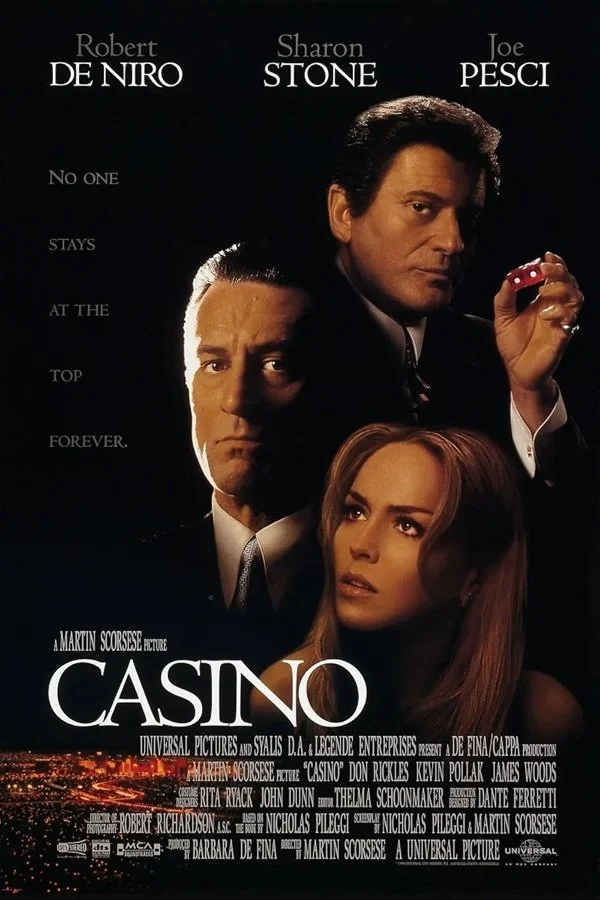Casino turns 30!
Paradise... while it lasted.
This epic crime drama had its theatrical release on November 22, 1995.
This is an image of a poster for the 1995 film Casino. Copyright Universal Pictures.
Casino was directed by Martin Scorsese. The film is based on New York crime reporter Nicholas Pileggi's book Casino: Love and Honor in Las Vegas. The research for Casino began when Pileggi read a 1980 report from the Las Vegas Sun about a domestic argument between Frank "Lefty" Rosenthal, a casino figure, and his wife Geri McGee, a former topless dancer. This gave him an idea to focus on a new book about the true story of mob infringement in Las Vegas during the 1970s, when filming of Goodfellas (whose screenplay he co-wrote with Scorsese) was coming to an end. The film’s primary characters are based on real people, members of Chicago and Kansas City LCN.
Source: Wikipedia.org
“Without Music, I Would Be Lost.”
Casino director Martin Scorsese skillfully employs music to enhance his storytelling. Music allows him to effectively shape mood, define characters, and establish a sense of time and place, the setting. He uses both diegetic and non-diegetic music to create complex narratives. Diegetic music is music that originates from within the story's world, meaning the characters within the scene can also hear it. Non-diegetic music is a soundtrack or score added for the audience's benefit and cannot be heard by the characters. Martin also uses music to help visualize scenes and to create a certain "sense memory" that connects with his audiences. I continue to be amazed by how music can defy the constraints of space and time to create lasting memories.
“Time flows in a continuous stream — yet our memories are divided into separate episodes, all of which become part of our personal narrative. How emotions shape this memory formation process is a mystery that science has only recently begun to unravel. The latest clue comes from UCLA psychologists, who have discovered that fluctuating emotions elicited by music helps form separate and durable memories… ‘Changes in emotion evoked by music created boundaries between episodes that made it easier for people to remember what they had seen and when they had seen it,’ said lead author Mason McClay, a doctoral student in psychology at UCLA.”
- Ober, Holly, University of California - Los Angeles. “Why emotions stirred by music create such powerful memories”. November 20, 2023
Image by Annie Spratt from Unsplash
“Like a ballad, each of our lives tells a story…”
Whether it is Blues, Pop, or Rock, Martin Scorsese always seems to select the perfect song from the "soundtrack of his life.” His innovative use of popular music, especially that of the Rolling Stones, has been immensely influential on other filmmakers, including Quentin Tarantino.

